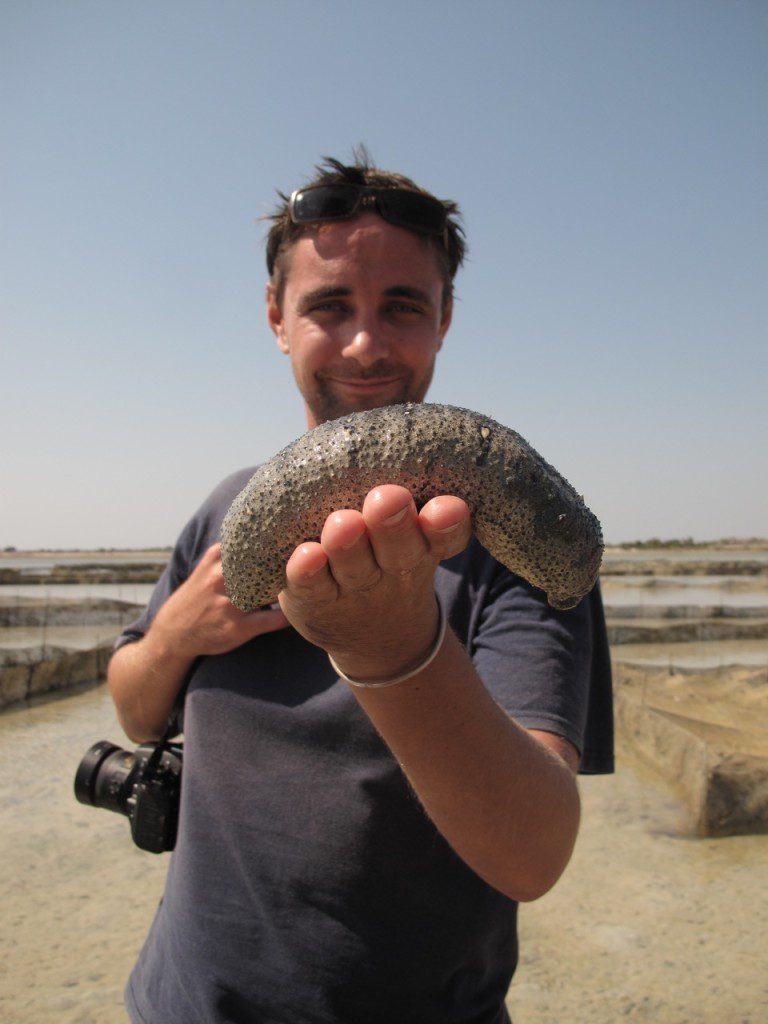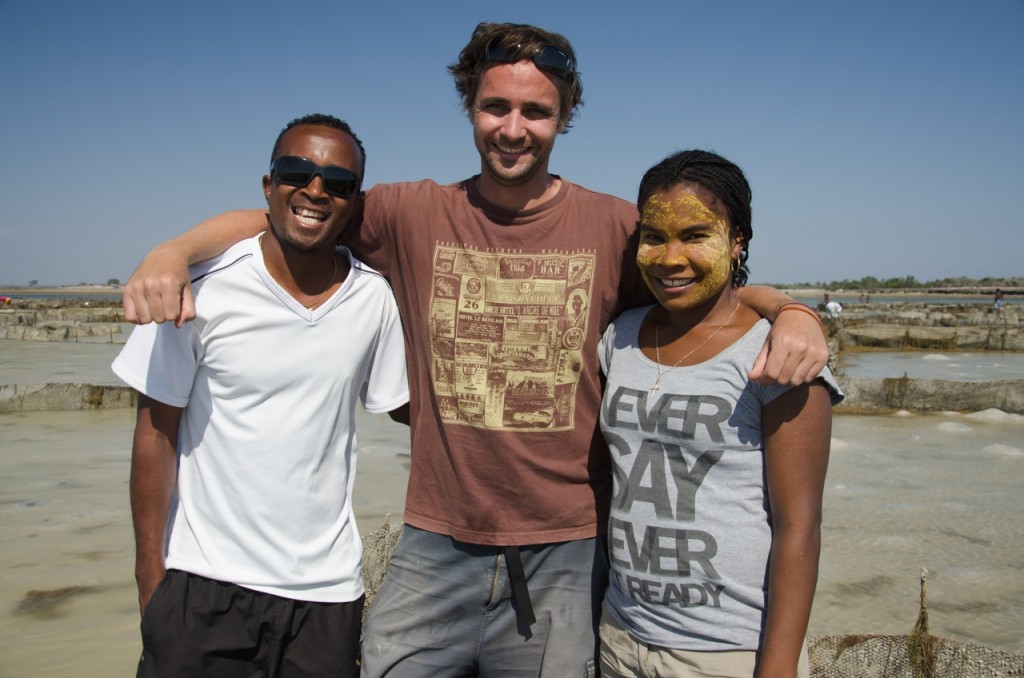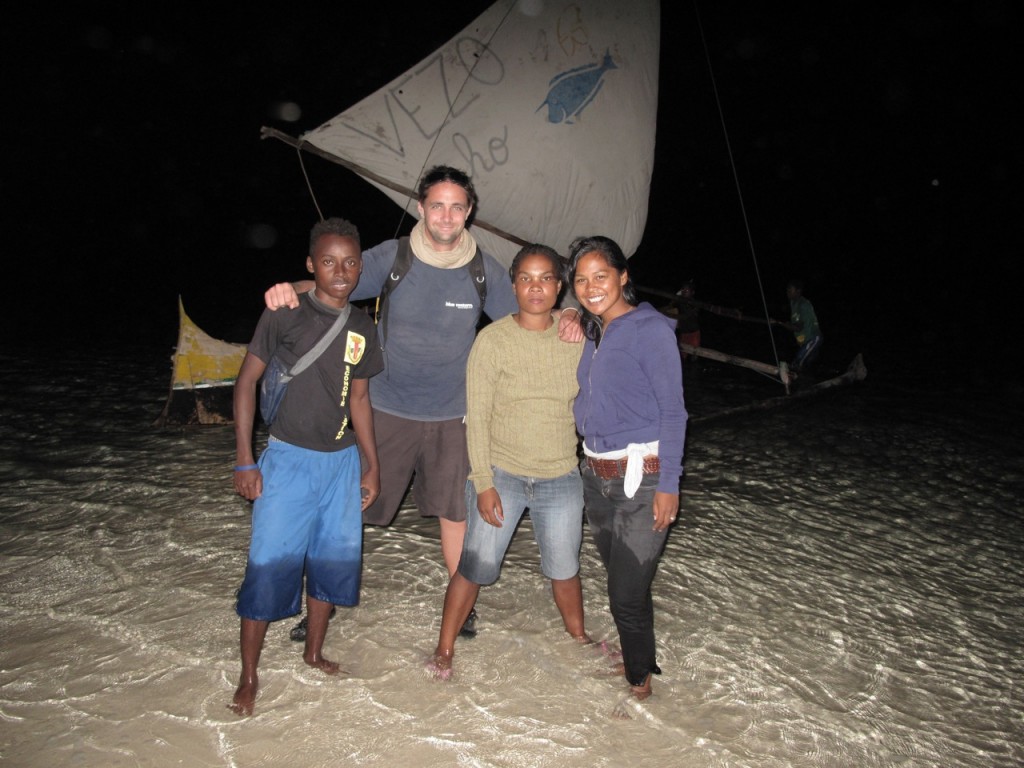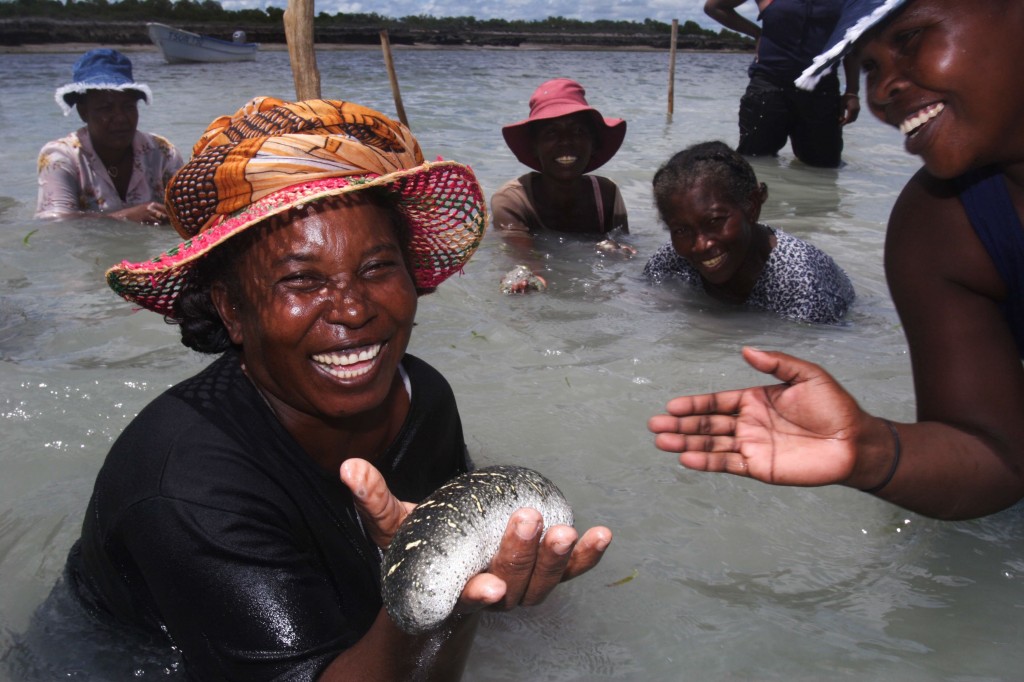In the fifteenth instalment in our series of Q&As with Blue Ventures staff, we ask Antoine Rougier, our Aquaculture Advisor (previously our Aquaculture Coordinator for 3 years in Madagascar), some searching questions about science, conservation and superpowers…

What is your scientific background?
I’m a certified aquaculture technician who wanted to explore beyond the technical aspect of aquaculture. I continued my studies to get a bachelor’s degree in the international trade of agricultural products, and a master’s degree in international development. My master’s was a truly eye-opening experience for me, and got me into this really exciting sector, at the crossroads between social sciences, economical development, and agronomic and environmental issues. An interdisciplinary background, which I think matches pretty well with the integrated approaches developed by Blue Ventures!
Why do you do what you do?
I would say that passion has been the main factor that led me to where I am now… For as long as I can remember, I have been passionate about salty and fresh water, fish and fishing, and more generally with aquatic environments, and I could not imagine working in a different field. I also realised as I was moving forward with my studies that I wanted not only to work for a salary at the end of the month, but also to have a positive impact on the people and the environment around me.
We can say that I’m a bit of an idealist, wanting to make the world a better place, but I also understand that idealism is not enough, and that it is only coupled with professionalism that I can have a chance to actually make a difference. Being part of Blue Ventures and its great team of “professional idealists” has been a wonderful opportunity for me to learn and to move towards achieving this!

Antoine with Josvah and Zizienne
What is the best/worst thing about being an aquaculture specialist?
I think the best thing about my job is how varied the work is. It’s often pretty intense and sometimes quite stressful, with a lot of responsibilities, but it’s impossible to get bored as there isn’t one day the same as the other. Doing logistics, human resource management, checking on seaweed or sea cucumber farms in remote places, having meetings with authorities or partners, working on research plans with students from the local university or from some prestigious MBA in the US, and travelling on bumpy roads in 4x4s across insanely beautiful landscapes are just a tiny sample of what can happen in the life of an aquaculture coordinator with Blue Ventures!
The worst thing I can think of is probably the first 10 minutes waking up in the middle of the night for some sea cucumber monitoring or harvesting… Setting an alarm for midnight or 1am, to take care of sea cucumbers – because they remain buried and really hard to find during the day – is not a really natural move! But honestly, once my brain is properly on, these hours spent wading in the mud under the stars, discovering the amazing nightlife in the seagrass beds, and joking with the farmers while counting and weighing their sea cucumbers are some of my unforgettable memories with Blue Ventures!

What do you enjoy most about your job?
The most enjoyable aspect of this job is the quality of the people I’m working with, or that this job allows me to meet. The topics of marine conservation and aquaculture development, and places full of challenges like Madagascar, seem to attract a certain type of people, often very knowledgeable, hard-working and seriously motivated in this kind of career.
The off-the-beaten-track setting makes the proportion of really interesting people (team mates, volunteers and project partners) so high that I can’t count how many fascinating conversations I’ve had in this context, and how many brilliant ideas came from these discussions.
What is your favourite species and why?
My favourites species are definitely marine, and as a passionate fisherman, I have a true obsession and respect for the big, fast and powerful predators of the tropical seas, like trevallies, tunas, sailfish or marlins… But surprisingly enough, there is a family of sea creatures that I wanted to work with since I was studying aquaculture, 10 years ago, and that I really discovered and fell in love with when working with Blue Ventures… the sea cucumber!
Suffering from an obvious lack of charisma, for me sea cucumbers are really underestimated! Colonising many different habitats, from shallow tropical seagrass beds to deep and cold polar oceans, they are a colourful and weird family of hundreds of species… Source of income for thousands of coastal families in the Indo-Pacific region and fuelling a multimillion dollar international trade to Asia, sea cucumbers are of real importance, but stocks are being overexploited with relative indifference to the public, before their ecology or biology are even totally known! It’s a great excitement to be contributing to the work of the few passionate people trying to increase the knowledge, consideration and sustainability of this amazing marine resource!

What would your scientific superpower be?
I would love to create an “instant relevant policy design and implementation” potion. Policies, regulations and laws are so essential to support conservation and development, but take so much time to be created, and even more to be implemented, due to the number of stakeholders involved, the scale of certain problems and the strength of certain lobbies, that I feel they sometimes take too much time to be able to offer an adequate response to urgent issues. This potion coupled with an “instant public awareness” formula would definitely help to address problems much more efficiently.
What is one of the strangest things that has happened to you while working on conservation?
This one is probably the hardest question of all, considering the countless strange things that have happened in my life in the field in Madagascar over the last 6 years… The first thing that spontaneously comes to mind would be the many hours spent “rodeo-ing” massive ice-boxes full of freshly collected octopus along bumpy coastal roads, transported by ex-army trucks from Andavadoaka to Toliara for processing and export. The even greater number of hours spent preparing sea cucumbers for drying, often in the middle of the night, could also definitely be ranked among the top type of things that my childhood in Paris and Versailles was not leading me to…

